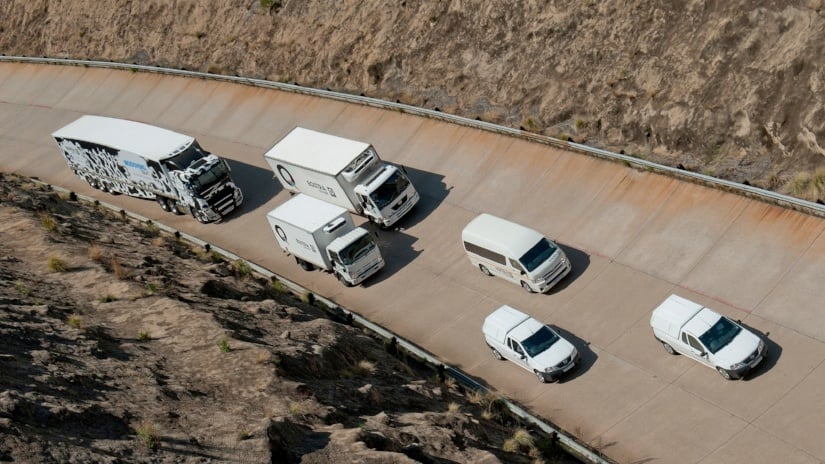
Sometimes you’ll need to transport cold goods, and can’t break the cold chain, and sometimes you’ll have to move around dangerous items. Regardless of what you need to transport, specialised fleets and their needs are important.
We are all familiar with everyday fleets, from trucks with trailers to light delivery vehicles, or bakkies, and cars that do deliveries.
However, did you know that the fleet delivering items to your local supermarket is highly specialised?
Moving Fast Moving Consumer Goods (FMCG) requires that trucks to be kept at specific temperatures. In fact, understanding refrigeration, building refrigerated trucks as well as storage environments has grown into a scientifically-based industry in its own right.
Refrigerator trucks can be ice-cooled, equipped with any one of a variety of mechanical refrigeration systems, which are powered by small displacement diesel engines, or use carbon dioxide – either as dry ice or in liquid form, as a cooling agent.
An interesting fact is that the first successful mechanically refrigerated trucks were introduced by the ice cream industry in about 1925.
No smoking
Then there are those trucks that move around gas bottles and other potentially hazardous items – the ones you don’t dare smoke anywhere near. There are also fuel tankers, which move an equally hazardous item.
When moving hazardous items, you used to have to abide by the Hazchem Regulations promulgated under the Hazardous Substances Act, 1973. This law, which controlled the transport of dangerous substances by road tanker since January 10, 1987, was replaced on August 3, 2001 by a set of regulations made under section 54 (Chapter VIII) of the National Road Traffic Act, 1996.
With the implementation of these Dangerous Goods Regulations, control over this sector went from falling under the ambit of the Department of Health to the Department of Transport. The regulations were also extended to include the transport of all dangerous goods in packs or bulk.
However, the list of goods that fall under the regulations is substantial, and affects many operators – and you may not even know you fall under this law.
For full details of the requirements refer to the Dangerous Goods Digest. It is vitally important that all requirements for construction of a vehicle to transport hazardous goods is followed because of the risks involved.
Just a few years ago, a diesel tanker ploughed into concrete barriers separating construction workers from the one usable lane open to traffic, likely because of a tyre blow out. Thankfully, no-one was hurt, although 37 000 litres of diesel flowed away down the N3.
If the spilt fuel had been petrol, this would have been a very serious incident because diesel ignites at 55 degrees Celsius, while petrol can ignite at -43 degrees Celsius, which would have caused a huge explosion.
Because of this, it’s essential that specialised fleets have well trained drivers who are all familiar with transporting goods according to set rules and regulations.
If you need help with training your drivers, read this blog post on Building fleet success: Accurate driver training and reviews.
Download our handy printable pool logbook template to help you keep your paperwork in order.
